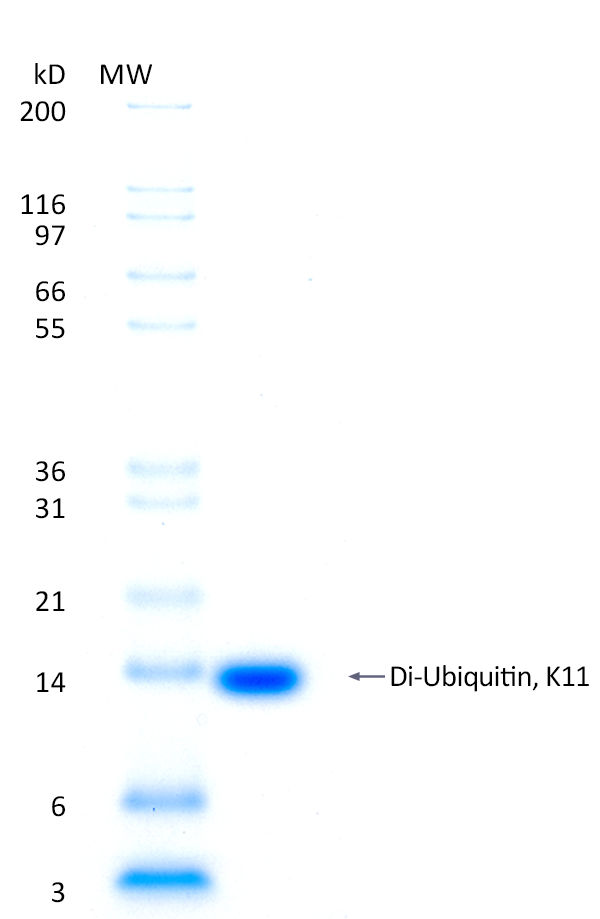 2 μg K11-linked Di-Ubiquitin run on 4-12% SDS-PAGE gel under reducing conditions, then visualized with Colloidal Coomassie Blue Stain.
2 μg K11-linked Di-Ubiquitin run on 4-12% SDS-PAGE gel under reducing conditions, then visualized with Colloidal Coomassie Blue Stain.For Research Use Only (RUO)
Garnet, M.J., et al. (2009) Nat Cell Biol 11(11):1363-1369 PMID 19820702
Mevissen, T.E.T, et al. (2016) Nature 538(7625):402-405 PMID 27732584